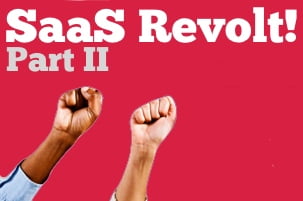
Several years ago, I got divorced. Setting the whole sad soap opera aside, a number of things that were important attributes of my life changed overnight. The short form of the story is that I got a new appreciation for the importance of Employee Assistance Programs.
One of the biggest surprises was the difference between being a home owner and a home renter. I’d owned the place in which I lived for so long that I’d forgotten what it meant to have a landlord. On the positive side, I was immensely more mobile and could afford to consider all sorts of living arrangements. As a renter, my commitment was as long as the lease and I had no material investment. The downside included limits on my freedom to modify the place, the loss of investment leverage and a lower sense of control.
Generally, renting involves less out of pocket expense, smaller commitment thresholds (on both sides), more personal mobility, less financial stability, less security and more of a certain kind of freedom. Somehow, ownership delivers a huge pile of intangible benefit in terms of perceived security and control.
When you rent, you can be assured that larger renters will receive better treatment; landlords have to manage their portfolios by focusing resources where the return will be greatest. So, if the largest tenant requires a certain infrastructure improvement, the rest of the tenants will share in the benefit. If a small tenant needs an improvement, it might take a while.
As long as you are willing to ride the horse of endless unpredictable upgrades, renting makes it possible (though not likely) to always have the latest tools and techniques at a marginal cost. Like any portfolio of rental properties, the flow of updates and maintenance depends more on the landlord’s financial position than market demands.
If, on the other hand, you want to customize the living area of your particular house, you’d better own it. If you value choice in tools and improvements, ownership makes it possible to choose timing based on your financial and needs.
In a nutshell, this is the surprise awaiting customers who move from on-premise software to SaaS. SaaS is a rental unit in which you can configure a few options. At the other end of the spectrum is the equivalent of home ownership. Many SaaS customers are waking up to the fact that they paid more attention to the monthly expenditure than they did to flexibility, control and ownership.
Ooopsie.
Read the Series
- SaaS Revolt (Revisited)
- SaaS Revolt II (Renting vs Owning)
- Saas Revolt III (The Universal Tux)
- Saas Revolt IV (Total Cost of Ownership)











